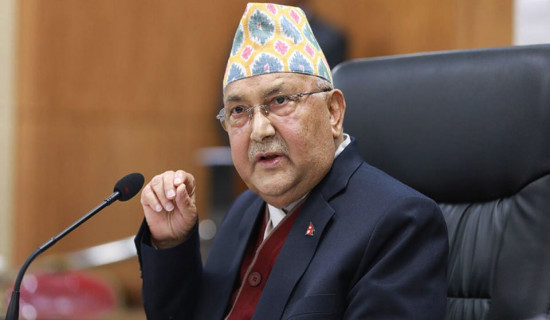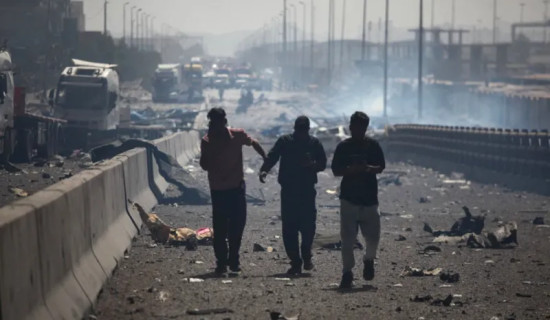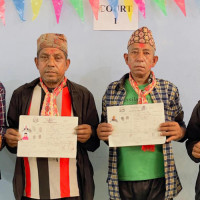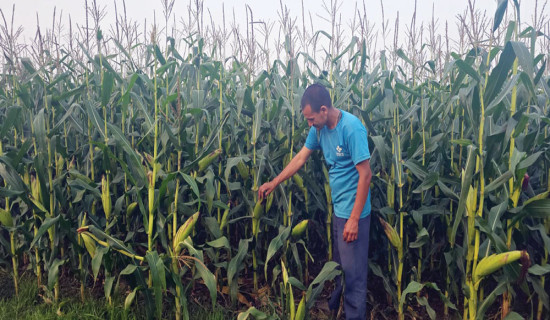- Sunday, 27 April 2025
Give Priority To Post-disaster Counseling
During a disaster, the immediate focus is often on physical survival, which includes but is not limited to rescue operations, emergency medical treatment, and the supply of food and shelter. Although these actions are vital but they only cover a portion of the assistance that are needed by impacted people and communities. Natural disasters like earthquakes and floods, as well as man-made ones like armed conflicts, can cause psychological and emotional harm, where psychosocial counseling is crucial. Psychosocial support fosters resilience, helps individuals overcome trauma, and lays the foundation for long-term recovery that offers more than just comfort.
Psychosocial counseling refers to the support provided to people to meet their social and psychological needs. It recognises that mental health is not isolated from people’s social environment. People may lose homes, livelihoods, loved ones, or a sense of security after a disaster. The disaster often triggers numerous emotional reactions that include shock, fear, grief, anxiety, depression, and sometimes post-traumatic stress disorder (PTSD. People who are provided psychosocial counseling are better able to manage these emotional traumas, develop coping skills, and reintegrate into society with a feeling of belonging and purpose.
Social bonds
Disasters can affect people's mental health and social bonds, besides damage to the physical infrastructure. The trauma caused by these incidents may still be prevalent even long after the obvious harm has been addressed. The psychological effects are frequently more severe and enduring than the physical harm. Without the treatment of mental health conditions, survivors could endure silent suffering, resulting in substance abuse, depression, family breakdowns, or even suicide.
Children are particularly vulnerable as their emotional development may be significantly affected by the loss of stability, exposure to frightening events, and separation from caregivers. Children may experience behavioural problems, poor academic performance, and chronic emotional instability without prompt counseling post-disaster. First aid workers and first responders are also susceptible to trauma. Ongoing exposure to pain and loss can cause burnout, compassion fatigue, and secondary trauma. Psychosocial support ensures that their mental health won't be jeopardised while they continue their essential work.
There is no one-size-fits-all approach to providing effective psychosocial counseling during emergencies. It needs to be community-based and sensitive to cultural differences. Every society has its own set of beliefs, coping strategies, and approaches to trauma and bereavement. Incorporating community elders, educators, religious leaders, and local counselors into the counseling process guarantees that the support is acceptable, relatable, and long-lasting.
Psychosocial initiatives rooted in the community encourage survivors to support one another. Peer support groups, community discussions, and group counseling sessions can all be effective means of promoting healing. These counselors promote social cohesiveness, restore trust, and provide people the tools they need to help one another get well. Psychosocial counseling is essential for developing resilience and does more than just make patients feel better temporarily. People and communities who are resilient are better able to overcome obstacles, recover from failures, and even become stronger after a disaster.
Through counseling, people can reinterpret their experiences, learn coping mechanisms, and rediscover their purpose and hope in life. Psychosocial support can also help close the gap between long-term development and emergency reaction. Counseling helps people return to job, school, and community activities more successfully by reestablishing emotional and social stability. As a result, the entire healing process is accelerated. Despite its significance, psychosocial counseling is frequently overlooked or underfunded in disaster response strategies. In their preparation and response plans, governments, non-governmental organisations, and humanitarian agencies must give equal weight to mental and physical health.
Incorporating mental health services into emergency clinics and relief centres and providing training and deployment for crisis-ready mental health professionals are essential after a disaster. Similarly, creating safe spaces, mobile counseling units, and helplines for vulnerable populations like women, children, and the elderly, and educating the public about mental health, stigma reduction, and help-seeking behavior are all examples of the support.
The COVID-19 pandemic brought to light the potential of technology in providing remote psychosocial assistance. In disaster situations, telecounseling, mental health applications, and online peer support groups are becoming more and more popular, particularly in situations where physical access is restricted. By extending the reach of mental health care, these tools enable marginalized or isolated groups to receive support.
Digital solutions, however, should complement, not replace, in-person support. Counseling in person is still quite beneficial, particularly in areas where internet access is poor or where social norms favor face-to-face communication. During natural disasters, funding psychosocial counseling is not only a humanitarian gesture but is a strategic necessity. The human cost of disasters is far higher and recovery is considerably more difficult in the absence of mental health support. It is time for society at large, humanitarian organisations, and legislators to realise that mending after a tragedy requires more than just physical infrastructure; it also entails taking care of survivors' hearts and minds.
Resiliency
Disaster risk reduction, emergency response, and sustainable development should be included in building mental health resilience. Depending on the help we give, the psychological traumas caused by disasters can either heal or become permanent. In conclusion, psychosocial counseling is an essential part of any all-encompassing disaster response. It recognises the whole range of human emotions, including suffering, fear, resiliency, and hope. Prioritising mental wellness benefits people in ways beyond just ensuring their survival. We empower them to thrive, even in the aftermath of great loss. And in doing so, we build stronger, more compassionate, and more resilient communities for the future.
(Dr. Lohani is the executive director at the Health Concern. lohanis@gmail.com)










-original-thumb.jpg)






